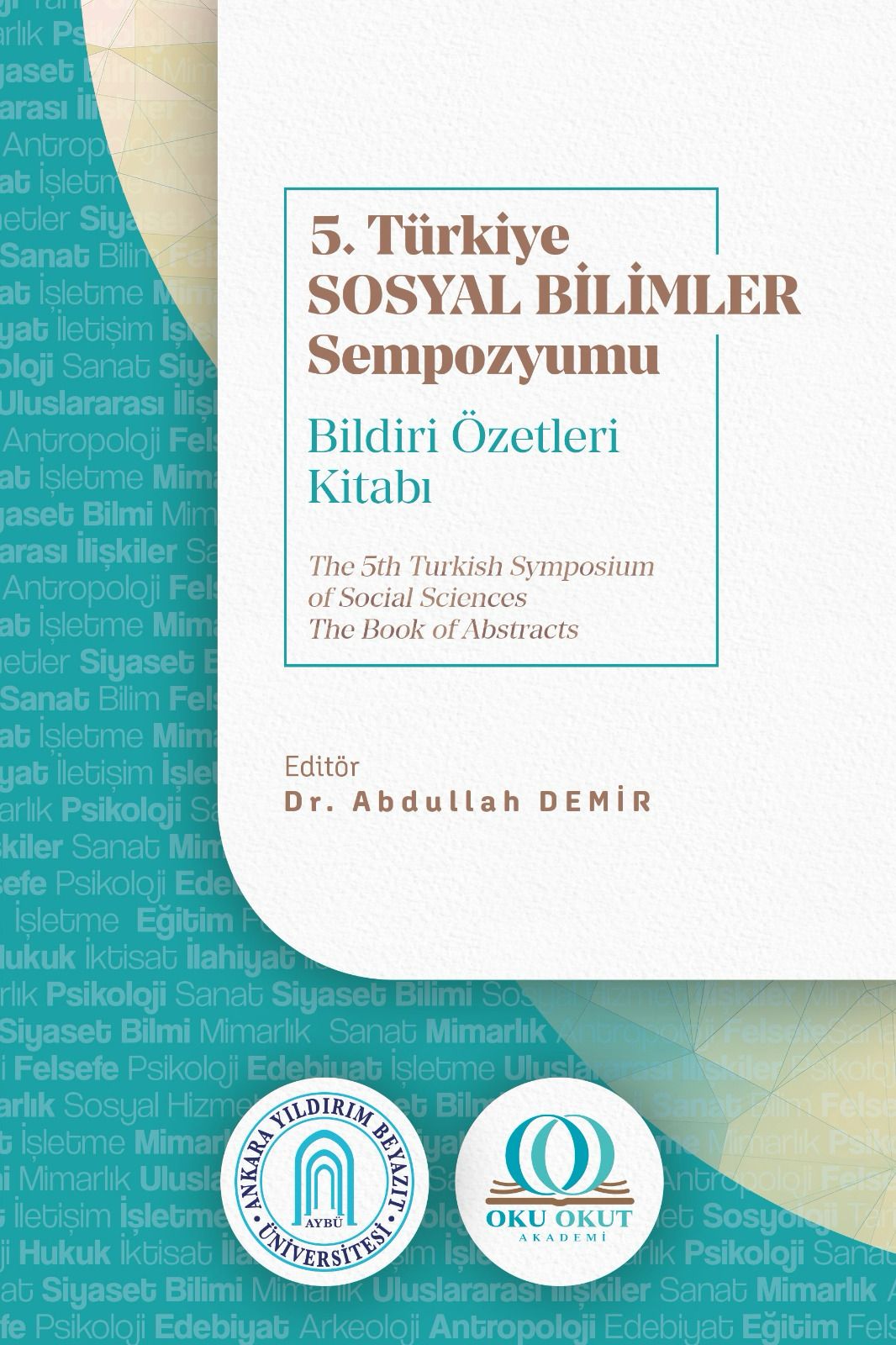On the Verification of Affirmative Statements: A Logical Analysis
Olumlu Önermelerin Doğrulanması Üzerine Bir Değerlendirme
A proposition is a statement that expresses a judgment and can be either true or false. Propositions are divided into two basic categories based on their structure: categorical and conditional. Categorical propositions consist of at least two concepts or conceptual phrases, and include a “copula” that connects these parts. Conditional propositions are formed by relating two categorical propositions through a conjunction. As an example, the proposition ‘Whenever the sun rises, it becomes daytime’ exemplifies how two independent predications are linked through a conditional connective element. The distinction between subject and predicate fundamental in categorical propositions. The subject is the element to which the judgement is predicated itself, and the predicate is the quality ascribed to the subject. These propositions are categorized as affirmative and negative depending on whether the predicate exists in the subject or not. However, in this classification, not only the connection between the subject predicate, but also the existence or non-existence of the subject or predicate is decisive. Moreover whether the connection is actual (bi’l-fiil) or potential (bi’l-kuvve) has a significant impact on the verification processes. This study examines the logical structure of affirmative propositions, their distinguishing features from negative and “ma’dūla” (non-existential) propositions, and the constitutive function of the subject-predicate-copula triad. Employing the qualitative research method of content analysis, the study comparatively analyzes key classical logical texts, including: Avicenna’s Sharḥ al-Ishārāt wa’l-Tanbīhāt, Fakhr al-Dīn al-Rāzī’s al-Mulakhkhaṣ fī al-Manṭiq wa’l-Ḥikma, al-Khūnajī’s Kashf al-Asrār ʿan Ghawāmiḍ al-Afkār, al-Abharī’s Kashf al-Ḥaqāʾiq fī Taḥrīr al-Daqāʾiq, al-Kātibī’s Jāmiʿ al-Daqāʾiq fī Kashf al-Ḥaqāʾiq, al-Urmawī’s Bayān al-Ḥaqq, and Quṭb al-Dīn al-Rāzī’s Lawāmiʿ al-Asrār fī Sharḥ Maṭāliʿ al-Anwār. Drawing from these texts, the study evaluates the often-overlooked criteria of affirmativeness in classical logical literature from both linguistic-semantic and ontological perspectives. Accordingly, the study seeks to answer the following questions: Are affirmative and negative propositions merely those that appear linguistically affirmative or negative? Are affirmative propositions ontologically limited to subjects whose existence is evident in the external world? If so, what is the status of propositions that are linguistically affirmative but whose subjects do not exist externally? Can propositions that are semantically meaningless be classified as negative propositions? This research not only explicates the structure of affirmative propositions but also offers a systematic analysis of the linguistic and conceptual foundations of the distinction among affirmative, negative, and ma’dūla propositions. In this respect, it contributes both to the internal coherence of classical logic and to contemporary theories of logical meaning. Moreover, it provides a theoretical framework for integrating concept analyses from the Islamic intellectual tradition concerning propositions into modern logical discussions.
Önerme, doğruluğa veya yanlışlığa açık olan yargı bildiren ifadelerdir. Mantık disiplininde önermeler yapılarına göre iki ana kategoriye ayrılır: yüklemli (kategorik) ve şartlı (koşullu) önermeler. Yüklemli önermeler, en az iki kavramdan ya da kavramsal söz öbeğinden oluşur ve bu öğeler arasında bir nispet kuran “bağ” unsurunu da içerir. Şartlı önermeler ise, iki yüklemli önermenin bir bağ aracılığıyla ilişkilendirilmesiyle meydana gelir. Örneğin, “Her ne zaman güneş doğarsa gündüz olur” önerme yapısında, iki bağımsız yüklemli önerme koşullu bir bağ ile birleştirilmiştir. Yüklemli önermelerde konu ve yüklem ayrımı esas alınır. Konu, hükmün kendisine isnat edildiği unsurdur; yüklem ise o konuyla ilişkilendirilen niteliktir. Bu önermeler, yüklemin konuda bulunup bulunmadığına göre olumlu veya olumsuz olarak sınıflandırılır. Ancak bu sınıflamanın sadece yüklemle konu arasındaki nispetle sınırlı kalmadığı, konunun veya yüklemin varlık ya da yokluk bildirmesinin de belirleyici olduğu görülmektedir. Ayrıca, nispetin fiilen (bi’l-fiil) mi yoksa potansiyel olarak (bi’l-kuvve) mı gerçekleştiği, doğrulama süreçleri üzerinde etkili olmaktadır. Bu çalışmada, olumlu önermelerin mantıksal yapısı, onları olumsuz ve madûle (varlık bildirmeyen) önermelerden ayıran yönler ve konu-yüklem-bağ üçlüsünün kurucu işlevi incelenmektedir. Araştırma nitel araştırma yöntemlerinden içerik analizi tekniği ile yürütülmüştür. Bu bağlamda temel klasik mantık metinleri olan İbn Sînâ’nın (öl. 1037) Şerhu’l-İşârât ve’t-Tenbîhât, Fahreddin er-Râzî’nin (öl. 1210) el-Mülahhas fi’l-mantık ve’l-hikme, el-Hûnecî’nin (öl. 1428) Keşfu’l-esrâr an Gavâmizi’l-efkâr, Esîrüddin el-Ebherî’nin (öl. 1265) Keşfu’l-Hakâik fî Tahrîri’d-Dekâik, Necmüddin el-Kâtibî’nin (öl. 1277) Câmiu’d-Dekâik fî Keşfi’l-Hakâik, Sirâceddin el-Urmevî’nin (öl. 1283) Beyânu’l-hak ve Kutbuddin er-Râzî’nin (öl. 1365) Levâmiu’l-Esrâr fî Şerhi Metâlii’l-Envâr adlı eserleri mukayeseli bir şekilde analiz edilmiştir. Bu metinlerden hareketle, klasik mantık literatüründe sıklıkla ihmal edilen, olumlu önermelerin linguistik semantik ve ontolojik açıdan olumlu olma kriterleri değerlendirilmiştir. Bu doğrultuda “Olumlu ve olumsuz önermeler sadece dilsel yapıda olumlu veya olumsuz olarak gözüken önermeler midir? Olumlu önermeler ontolojik açıdan konularının varlığının sadece dış dünyada mevcut olduğu önermeler midir? Şayet öyle ise konularının varlığı dış dünyada olmayan ama dilsel açıdan olumlu görünen önermelerin durumları ne olacaktır? Semantik olarak anlamsız olan önermeler olumsuz önermeler kategorisi içerisinde değerlendirilebilir mi?” sorularına cevap aranmaktadır. Çalışma, sadece olumlu önermenin yapısını açıklamakla kalmamakta, aynı zamanda olumlu, olumsuz ve madûle önerme ayrımının dilsel ve kavramsal zeminine yönelik sistematik bir çözümleme sunmaktadır. Bu yönüyle, hem klasik mantığın iç tutarlılığına hem de güncel mantıksal anlam kuramlarına yönelik tarihsel-felsefî bir katkı sağlamaktadır. Ayrıca İslam düşüncesi geleneğindeki önermeler meselesine ilişkin kavram analizlerinin, çağdaş mantık tartışmalarına nasıl dâhil edilebileceğine dair teorik bir açılımı mümkün kılmaktadır.

Telif Hakkı (c) 2025 Enver Şahin (Yazar)
Bu çalışma Creative Commons Attribution-NonCommercial 4.0 International License ile lisanslanmıştır.
CC BY-NC 4.0 lisansı, eserin ticari kullanım dışında, her türlü ortam ve formatta paylaşılmasına, kopyalanmasına, çoğaltılmasına ve orijinal esere uygun şekilde atıfta bulunmak kaydıyla yeniden düzenlenmesine, dönüştürülmesine ve eser üzerine inşa edilmesine izin verir.
Makale Bilgileri
- Konu Felsefe - Mantık
- Gönderim 27 Mayıs 2025
- Kabul 4 Ağustos 2025
- Yayım 29 Kasım 2025
- Sayı 5. Türkiye Sosyal Bilimler Sempozyumu
- Bildiri Bilim Alanı Felsefe - Mantık
Şahin, Enver. “Olumlu Önermelerin Doğrulanması Üzerine Bir Değerlendirme”. Türkiye Sosyal Bilimler Sempozyumu 5 (November 29, 2025). https://doi.org/10.55709/tsbsdergisi.657






